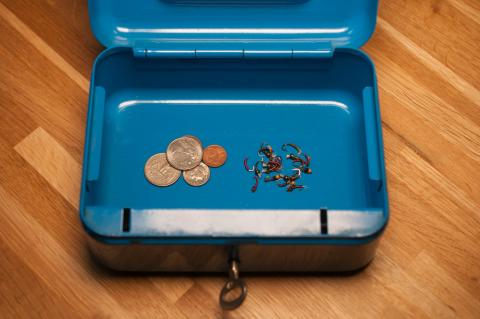When my Fiance and I were looking at a new home to purchase, we saw this house. It was being converted into an in-law apartment in the basement. The first thing I noticed was the old cabinets that were already in place. I quickly dubbed this are "Mine". The drawers are filled with tying supplies, I have a TV hooked up to my laptop, so I can stream Netflix or check out the latest patterns people post to Facebook or Instagram. There is also a radio for listening to tunes while I tie away. I still need to organize the shelves a bit, but so far, it's my own slice of solitude.
- Log in to post comments

